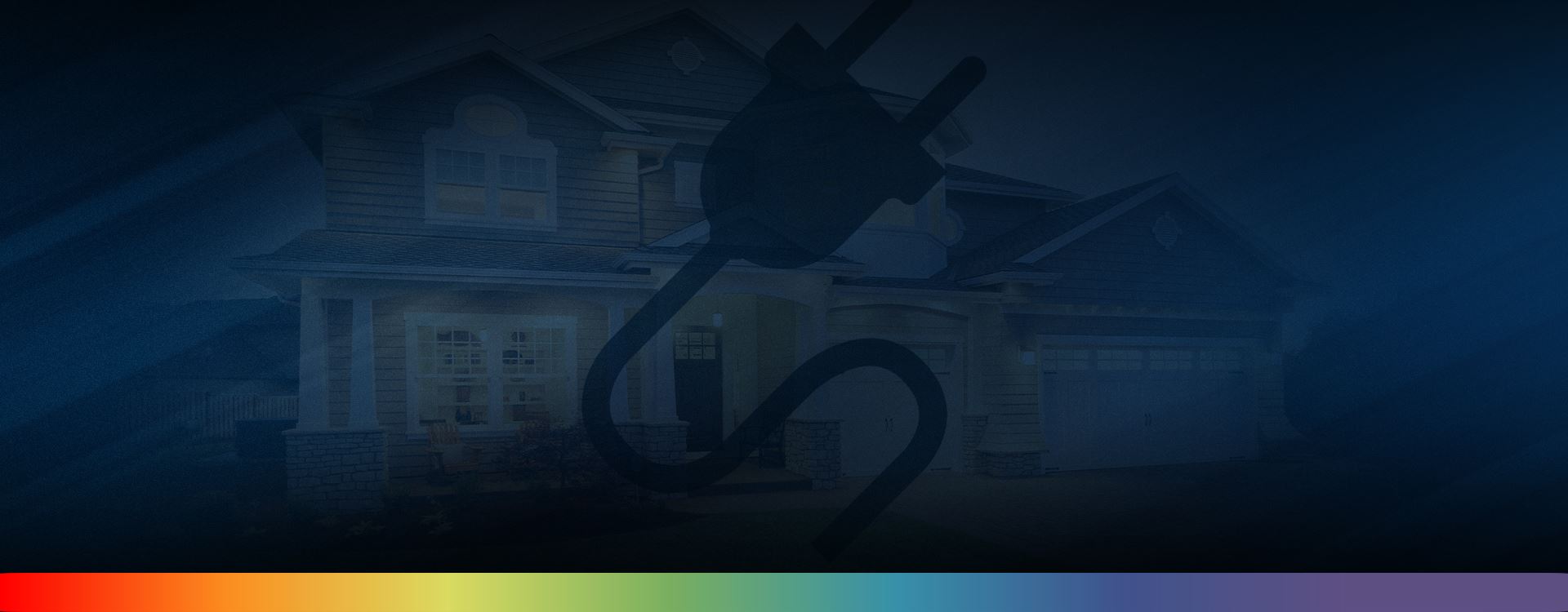Is Your Home a Fire Hazard? Atlanta Electrician Shares Insights
Is your home a fire hazard? Atlanta electrician Patrick McCauley, serving the community since 1999, shares valuable tips to help you keep your home and family safe from electrical fire hazards. Electrical problems can mean far more than just an inconvenience or higher electric bills. Some problems can be a risk of causing a fire in your home. His company, McCauley Electrical Services, provides a range of electrician services through part of Metro Atlanta, roughly covering from Midtown to Milton and from Sandy Springs to Decatur.
A few indicators that your house might be at risk of electrical fire include:
Sparks when you plug or unplug something in an electrical outlet
The sparks themselves can start a fire outside the outlet, particularly if you have flammable items such as clothing near the outlet. Or a fire could start behind the outlet, which would be a more difficult flame to extinguish.
Warm outlets and switches
If you have an outlet or switch that is noticeably warm to the touch, it’s likely there is a problem with the wiring or the outlet or switch itself. The electrical wires not being connected properly can cause heat in the problem areas, which can also lead to an electrical fire.
Scorch marks or discoloration at outlets or switches
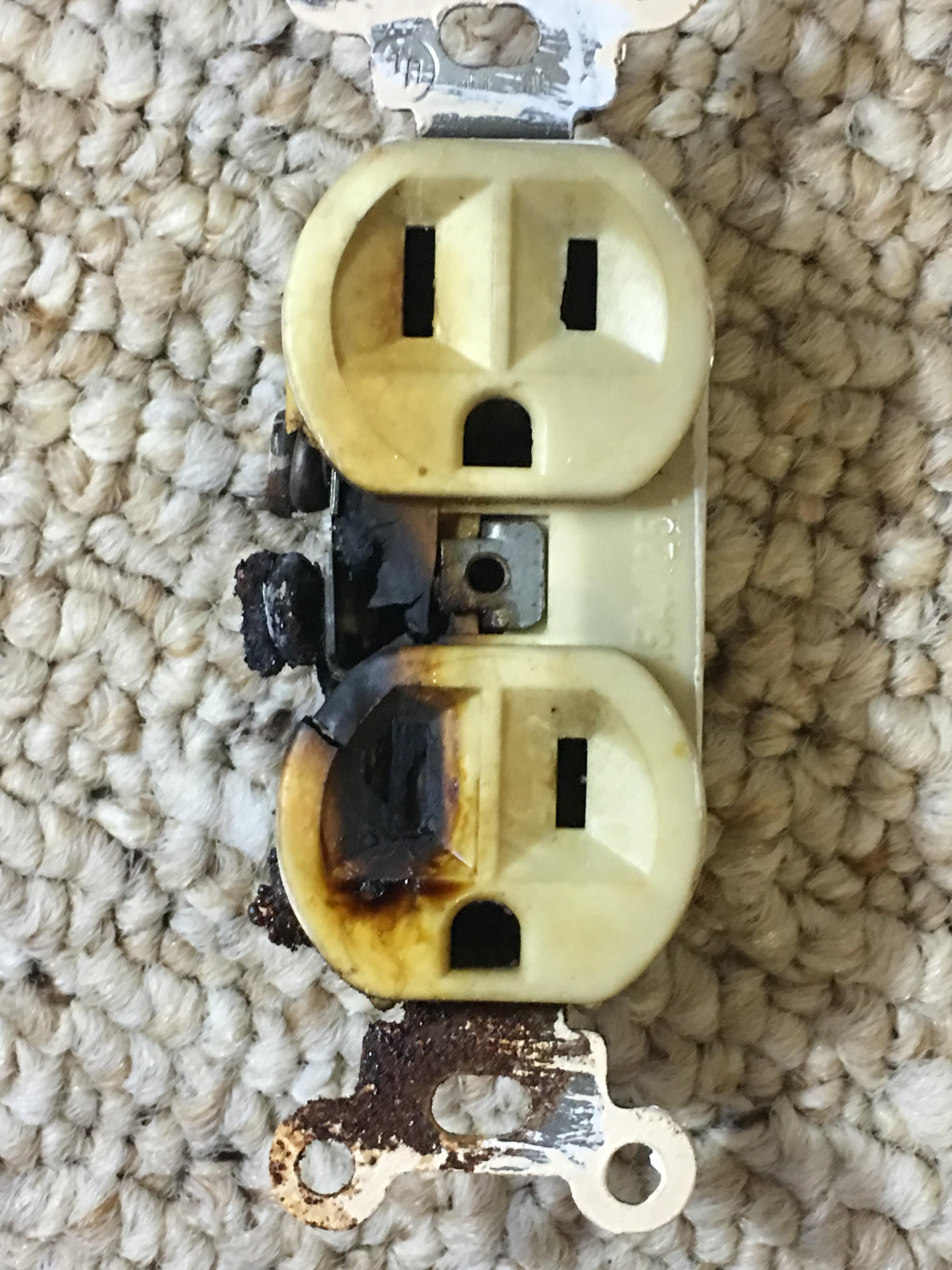
If you see scorch marks or discoloration at an electrical outlet or switch, you could have any of several problems that could be fire hazard. Atlanta electrician Patrick McCauley explains, “perhaps you’ve got too much plugged in to an outlet and the outlet can’t handle that much electricity flowing through it. Or maybe the wires are loose or otherwise not connected properly. Either way, the problem needs to be addressed by a competent electrician to reduce your fire risk. If it smells burnt, there’s likely a problem. If you think you smell something is burning, call me to troubleshoot and repair the problems.”
Flickering, dimming, or surging lights
This can have many causes, and results in an inconsistent electricity flow to your house or part of your house. It could be as simple as a bad light bulb, or it could be something with the entire electrical system. One example I saw was caused by a squirrel chewing the neutral line – their teeth never stop growing, so they frequently chew on things like softer metal (for example, copper or aluminum wire) to pare down their teeth. Rats, mice, and other rodents do this, too. Depending on where the problem is, inside or outside of the power meter, it might be your problem to fix or a Georgia Power problem. To know for sure, you should have an experienced Atlanta electrician inspect your electrical system to diagnose where the problem is.
Higher-capacity fuses in an older electrical system
In older homes, before the development of breaker panels, fuses were (and still are) used to protect from overloading the wiring in the home. The fuses are designed to tolerate up to a certain amount of electricity, and anything above that would blow the fuse. Problems can arise when fuses with too high a capacity are installed for the wires they provide power too, so the electrical surge might not blow a fuse, but could cause problems elsewhere along the line. This can result in electronics catching fire, overloading electrical connections, or worse causing the wiring to melt and start your house on fire.
Outdated electrical systems
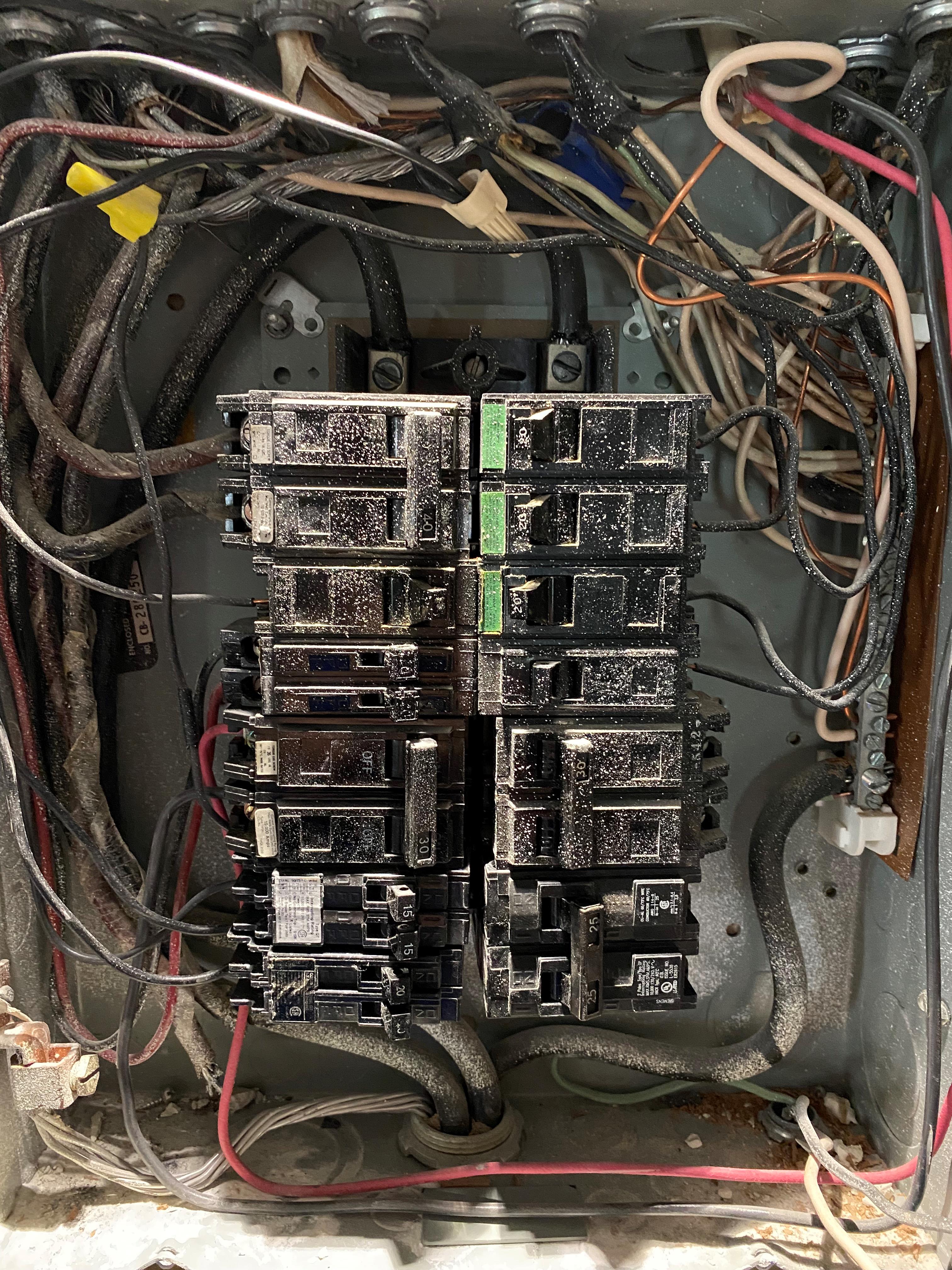
Many older homes simply weren’t designed for the electrical requirements of modern living. Think about how many things in your home require electricity – computers, giant televisions, cell phones, tablets, toasters, washing machines, dryers, more lights than used to be commonly used, air conditioning, hot tubs, and more. When your circuits get overloaded by too much electricity, it should trip your breakers, but older breaker panels often have worn connectors that don’t work as well as they should. This can overload the electrical system in your home and potentially start a fire.
Improper grounding
Grounding is where you have an electrical wire running into the ground from the service equipment, so as to dissipate excess electricity. Many older homes do not have a ground line installed, or it may be improperly installed.
Loose wires and bad wire connections
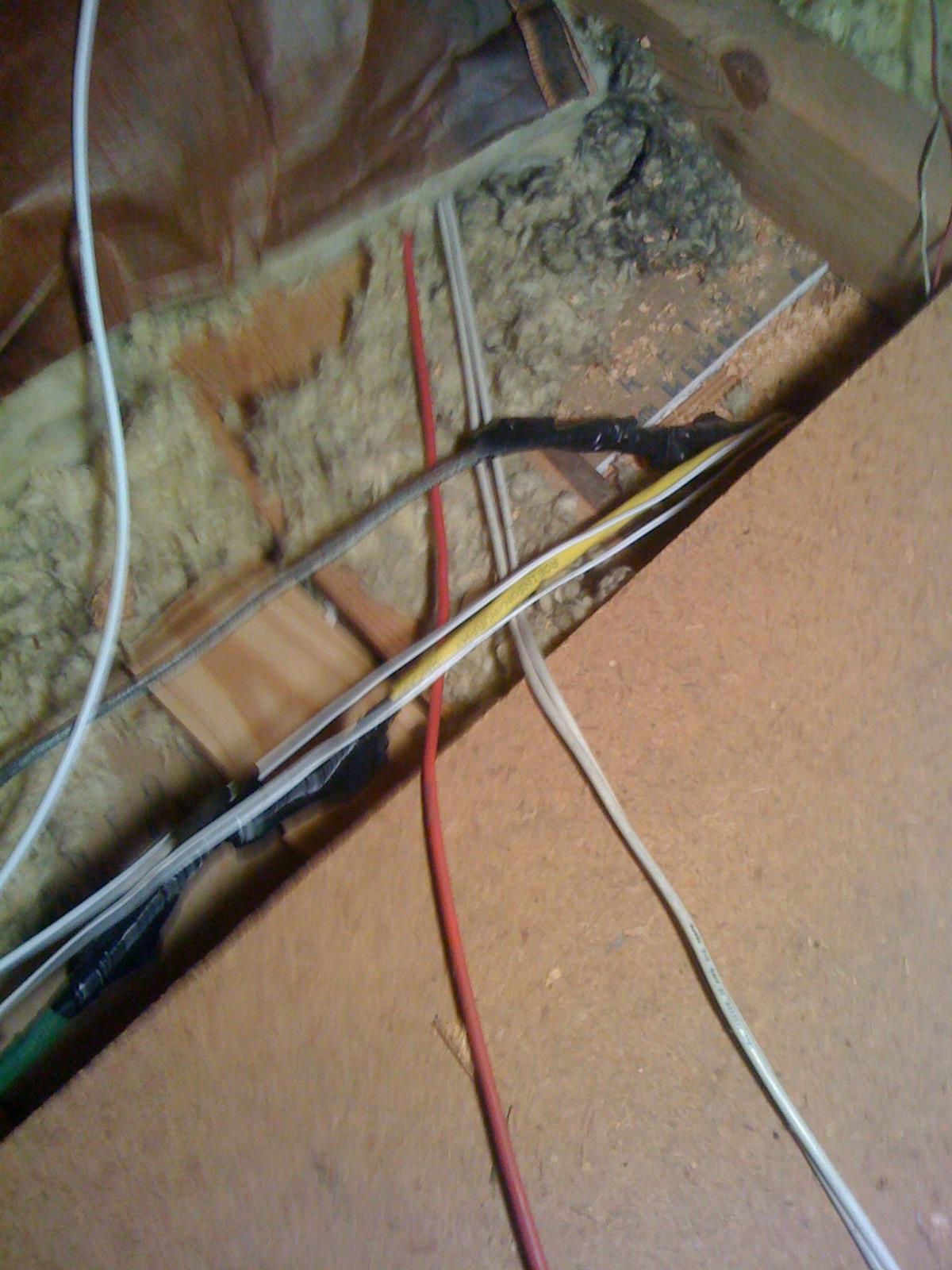
This is particularly common with inexperienced DIY electrical work. Sometimes people rely on electrical tape to cover connections, and fail to apply a proper cap to the connection.
Chewed wires from pests can be a major fire hazard
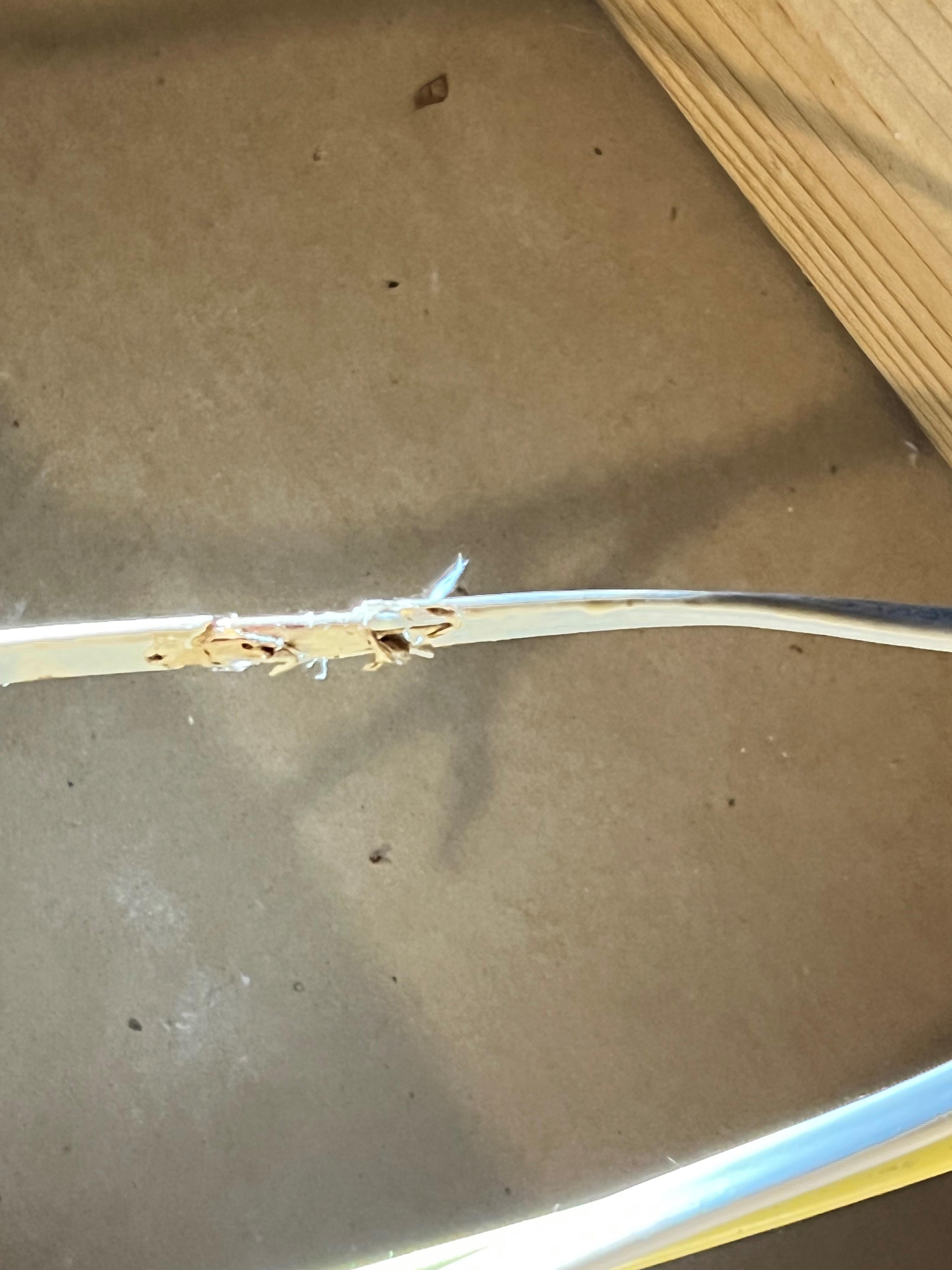
Rodents could have gotten in to your house and chewed on the wires, causing additional problems. Rats, mice, and squirrels in particular are known to chew the plastic covering on wires, exposing the metal wire that carries the electricity. Sometimes they’ll even chew on the wire itself, potentially breaking the connection or otherwise causing a fire hazard.
Old or faulty appliances
Even if your old appliance still seems to work fine, it could be putting you and your home at risk of causing an electrical fire. Frayed wires in particular are a big problem, especially if the appliance has been moved multiple times over the years.
Frayed cords under rugs or carpets
I’ve seen electrical wires run underneath rugs. Especially if this is a high-traffic area, the wire coating can get worn out from being walked on so many times.
Portable heaters
Portable heaters can be a fire hazard for several reasons. The high-heat ceramic heaters in particular pull a lot of electricity and can overload your electrical system, causing problems. Placement of heaters is also a risk – they need to be far enough away from any flammable materials to reduce catching those materials on fire. And they should never be plugged into power strips or extension cords. Portable heaters are often used every year, and older ones in particular are a higher risk.
Extension cords
Extension cords are meant to be a temporary solution, not a permanent one. The more “links” there are in the system, the greater the chance of a problem developing with at least one link. This can be a fire hazard. Particularly if you’re plugging in and unplugging any cord, this can cause wear and tear on both the wire and the outlet, increasing the chances of a problem.
Is your home a fire hazard? Atlanta electrician Patrick McCauley is here to keep your home safe from electrical fire hazards. Call (678) 324-3117, email patrick@mccelec.com, or use any of the contact forms on this site. You can also find Patrick on Facebook at http://www.facebook.com/mccelecsvc and on twitter at https://twitter.com/mccelec.
